Return to Israel Horizons main page
In the recent municipal elections in Tel Aviv held on October 30th, the Likud ran a campaign of incitement and hatred as only the Likud knows how to do it, with slogans like “It’s us or Hamas” and “It’s us or Meretz.” That sort of scare campaign may work nationally – recall Netanyahu’s desperate message on the last day of the 2016 national elections that “The Arabs are going to the polling stations in droves; bused in by the Left.”
But that clearly doesn’t work in liberal Tel Aviv, and the Likud dropped from 2 to 1 seat on the 31- member Tel Aviv Municipal Council. Perhaps in rightwing Jerusalem the scare tactic was more effective. A fake video was circulated showing a car with signs in Arabic urging people to vote for secular candidate Ofer Berkovitch accompanied by the statement: “The Arabs in East Jerusalem are now going to vote for Berkovitch. Watch Berkovitch’s car distribute flyers in Arabic saying ‘Berkovitch – only with me can you keep your home.” That may have influenced the outcome, giving the rightwing religious candidate Moshe Leon a slim victory with 51.5 percent of the vote. His win was since confirmed in a runoff.
As for the Tel Aviv race for the mayoralty, Likud Minister of Science and Technology Ofir Akunis, primarily known for disqualifying leading Israeli brain researcher Prof. Yael Amitai for an Israeli-German scientific committee because she once signed a petition in support of soldiers who refused to serve in the occupied West Bank and saying that “Senator McCarthy was right”, tested the waters and quickly got back on dry land.
All three candidates for mayor in Tel Aviv were on the left: Mayor Ron Huldai from Labor who was born on Kibbutz Hulda – writer Amos Oz was “adopted” by his father, the principal of the local high school when he came to the kibbutz as a teenager; Deputy Mayor “Youth Candidate” Asaf Zamir, married to the granddaughter of highly successful entrepreneur, left-wing Palmach underground veteran, and former Knesset Member Stef Wertheimer, who plastered Tel Aviv with posters with his smiling face saying it’s “Time for a Change”; and newcomer TV personality and former late night talk show host Assaf Harel.
Huldai, who had considered running for the Labor Party leadership and challenging Netanyahu, has been a good mayor despite some flaws, and was reelected to a 5th five year term. He declared that if “anti-Culture” Minister Miri Regev (that’s writer David Grossman’s title for her) tries to defund any cultural institutions in Tel Aviv because of violations of the proposed McCarthyite” Cultural Loyalty Law,” the Tel Aviv Municipality would make up the lost funding.
The most interesting of the candidates was Assaf Harel, son of the late Labor Party (very) dovish Knesset Member Aharon Harel, who was active in the International Center for Peace in the Middle East and later Executive Director of the Beit Berl Kibbutz Seminary and College. Assaf Harel became well-known for his biting and highly critical opening monologues on his late night show, similar to John Stewart, Stephen Colbert, John Oliver, Bill Maher, etc. His final monologue before his show was pulled for being too controversial contained a scathing critique of the Occupation. His monologues then moved to the Haaretz website.
What was particularly interesting about Harel is that he put together a joint Jewish-Arab list for the city council, called Anachnu Ha’ir (We are the City). All of their campaign posters and slogans appeared in Hebrew and Arabic, a clear provocation to the new Nation-State Law, which demoted Arabic from its status as an ‘official’ language to an undefined “special status.” The list also contained many Arab activists from Jaffa, as well as Jewish social activists from ‘south Tel Aviv’ (a code phrase for Mizrachim), alongside progressive Jews from the central and north Tel Aviv ( i.e., Ashkenazim).
Harel received a respectable 15% of the vote, and elected 4 members to the City Council – Harel himself; #2 Jaffa lawyer and activist Amir Badran; #3 South Tel Aviv neighborhood social activist Shula Keshet, a leading defender of African migrant workers; and #4 Moriah Shlomot, a former Executive Director of Peace Now. Additional interesting members of the list who will have a say in municipal affairs include his uncle, Alon Garbuz, founder and longtime progressive director the Tel Aviv Cinematheque who lives in Yad Eliahu in south Tel Aviv; and filmmaker Maisalon Hamoud, who studied cinema with my son Adi at the Minshar School of Art College. Hamoud lives in Jaffa. I highly recommend her first film “In Between,” though its Hebrew title, Lo Po, Lo Sham (Not Here, Not There) more accurately reflects the film, which focusses on dilemmas facing young Arab women in Israel between their conservative village backgrounds and liberal Tel Aviv.
The appearance and initial success of the joint Jewish-Arab “We Are the City” list in Tel Aviv raises the question of whether the future of progressive politics in Israel can be based on joint Jewish-Arab cooperation. A civil society movement called “Omdim Beyahad”, (Standing Together), has had a prominent role in most recent demonstrations against racism and for peace. One of the most popular slogans at these demonstrations is “Jews and Arabs Refuse to be Enemies”, also held aloft by members of Meretz and Hadash.
However, the challenge is to channel this cooperation into the political sphere, and while it appeared to work in Tel Aviv-Jaffa (the official name of the city), it is much more difficult on the national level. Meretz has one Palestinian-Israeli Member of Knesset, Issawi Frej, while the Joint Arab List has one Jewish MK, Dov Khenin. In Labor, Chair Avi Gabbay actually forced its one Arab MK, Zouheir Bahloul, to resign because he was too independent. Logic would suggest cooperation between Meretz and the Joint List, particularly with the Hadash component, i.e., the former Communists and their allies, who define themselves as a Jewish-Arab party and, like Meretz, support a two-state solution. However in the last elections, the Joint List, composed of 4 different Arab parties which are variously progressive, Islamist and nationalist, wasn’t even capable of coming to an excess votes arrangement with Meretz, thanks to a veto by the secular nationalist party, Balad.
The only time the Israeli (Jewish) Left seriously cooperated with the Arab parties was during the Rabin (later Peres) Labor -Meretz government of 1992-96. Although the Arab parties were not officially part of the government, they supported it externally, which was what enabled the Oslo I and II agreements to pass in the Knesset. That was also the period when the most attention was paid to the needs of the Palestinian sector of Israeli society. And it’s that sort of cooperation which is necessary if we are to counteract the powerful ultra-nationalist and extremist religious trends within Israeli society. However, it won’t be quick or easy to achieve.
The issue of potential cooperation between progressive Jewish forces and Palestinians in Jerusalem, who now number almost 40% of the city’s population in the city, is another story requiring another article. Right now, the overwhelming majority of Jerusalem Palestinians (who are defined as “permanent residents,” not citizens) believe that political cooperation with Israeli Jews in the municipal elections, or even participating in them at all, would be tantamount to recognition of the Israeli occupation of their side of the city. That is also the official position of the Palestinian Authority and the PLO. If the attitude towards voting changed and became widespread, it would truly revolutionize Jerusalem’s political equations.
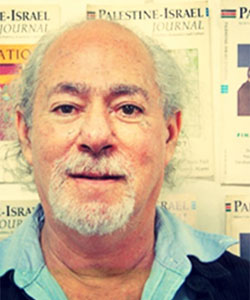
Hillel Schenker
Hillel Schenker is Co-Editor of the Jerusalem-based Palestine-Israel Journal (www.pij.org), a former member of the Meretz Conference, and former Chair of Democrats Abroad – Israel. He lives in Tel Aviv.

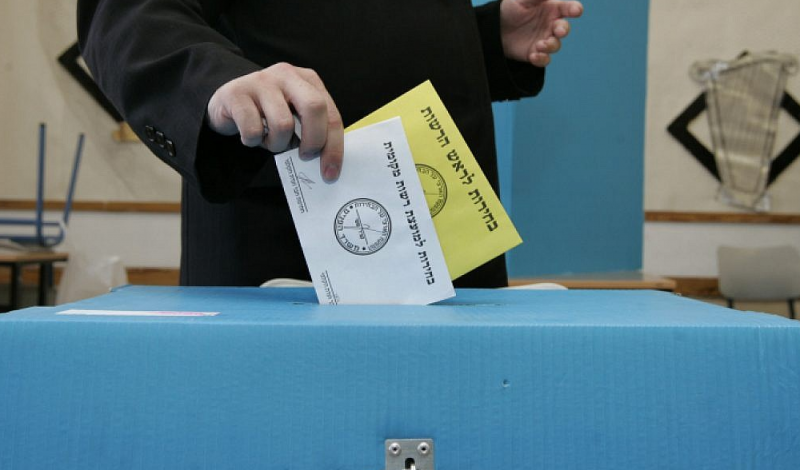
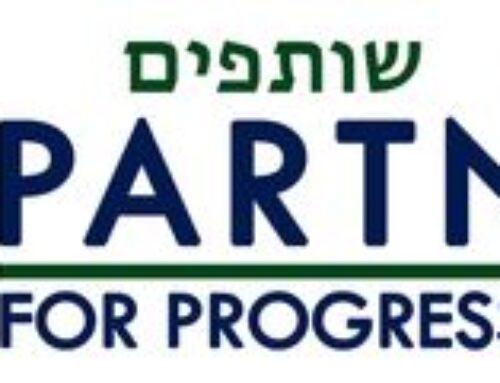

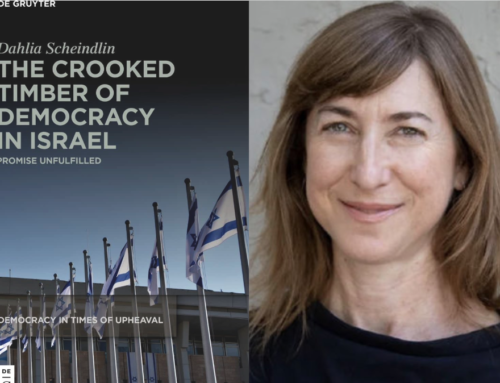
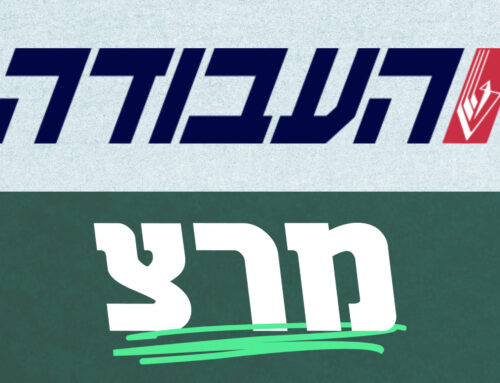

Leave A Comment